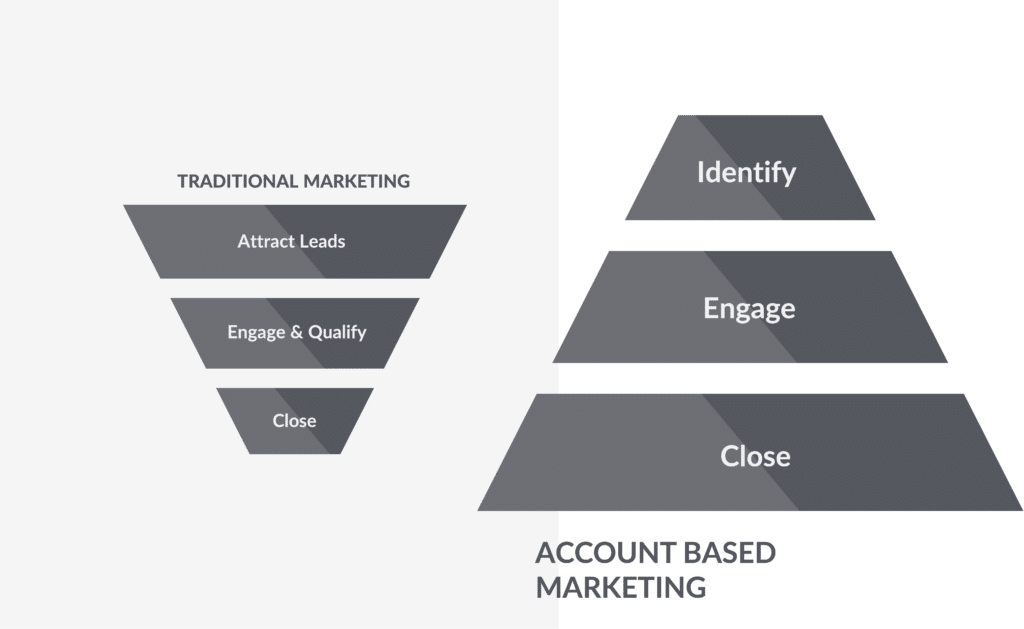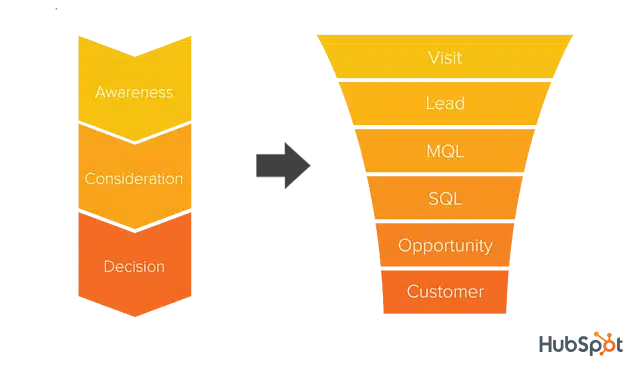Why are LinkedIn, articles, and case studies important to a B2B marketing strategy? In the dynamic world of B2B marketing, businesses are constantly seeking innovative strategies to attract, engage, and convert their target audience into sales. Amidst the rapidly evolving digital landscape, one principle remains steadfast: Content is King. For the top two B2B marketing strategies, Account-Based Marketing (ABM) and Inbound Marketing, compelling content lies at the heart of both. But why? If your business has never gotten a sales call from a LinkedIn post, you’re not alone, but that doesn’t diminish the importance of content.
The Core of Account-Based Marketing (ABM):

Account-Based Marketing (ABM) is a focused marketing strategy that targets the business’ specific target market instead of casting a wide net to reach as many eyes as possible. It is a highly personalized approach that demands relevant, valuable, and tailored content. Here’s how content affects the results of ABM:
Personalization and Relevance:
ABM requires delivering personalized content to individual accounts. Through extensive research and analysis, businesses can understand their target’s needs, pain points, and interests. With the right content tailored to address these unique concerns, marketers can establish a deeper connection, foster trust, and demonstrate expertise, leading to increased engagement and higher conversion rates.
Building Credibility and Authority:
Well-crafted content showcases a company’s expertise and knowledge in its field. By providing valuable insights, industry trends, and expert opinions, businesses and their employees can position themselves as thought leaders and trusted advisors in the eyes of their target accounts. This credibility plays a crucial role in the decision-making process and can significantly impact the success of ABM initiatives.
Nurturing Throughout the Sales Funnel:
ABM is not just about generating leads; it’s about nurturing prospects throughout the sales funnel. Content marketing is pivotal in this nurturing process, delivering relevant content at each stage of the buyer’s journey. This continuous engagement helps keep the brand top of mind and increases the likelihood of conversion.
The Essence of Inbound Marketing:

Inbound Marketing is a customer-centric strategy that focuses on attracting potential buyers organically rather than relying on paid advertising. This methodology relies heavily on content to draw in and engage prospects. Here’s how content impacts the results of Inbound Marketing:
Attracting the Right Audience:
The first step in Inbound Marketing is attracting the right audience, and content plays a significant role in this process. By creating SEO-optimized blog posts, informative articles, engaging social media content, and valuable resources, businesses can position themselves to be found by potential customers actively seeking solutions to their problems.
Lead Generation and Conversion:
Compelling content is a powerful lead-generation tool in Inbound Marketing. Valuable guides, webinars, whitepapers, and other content offers can encourage visitors to submit their contact information in exchange for knowledge, insights, or solutions. As these leads engage with more content, the likelihood of conversion increases.
Establishing Trust and Loyalty:
Inbound Marketing aims to build lasting customer relationships. Content marketing fosters trust and loyalty among prospects and existing clients while consistently delivering value. Customers who perceive a company as genuinely interested in their success and well-being will likely become advocates and refer others.
Content marketing is the backbone of Account-Based Marketing (ABM) and Inbound Marketing in B2B. Its ability to personalize messages, establish credibility, nurture relationships, attract the right audience, and drive conversions makes it a powerful tool for businesses seeking success in their marketing endeavors. As B2B buyers increasingly rely on valuable content to make informed decisions, companies prioritizing content creation and delivery will undoubtedly see results. Remember, in B2B marketing, content is indeed king.


